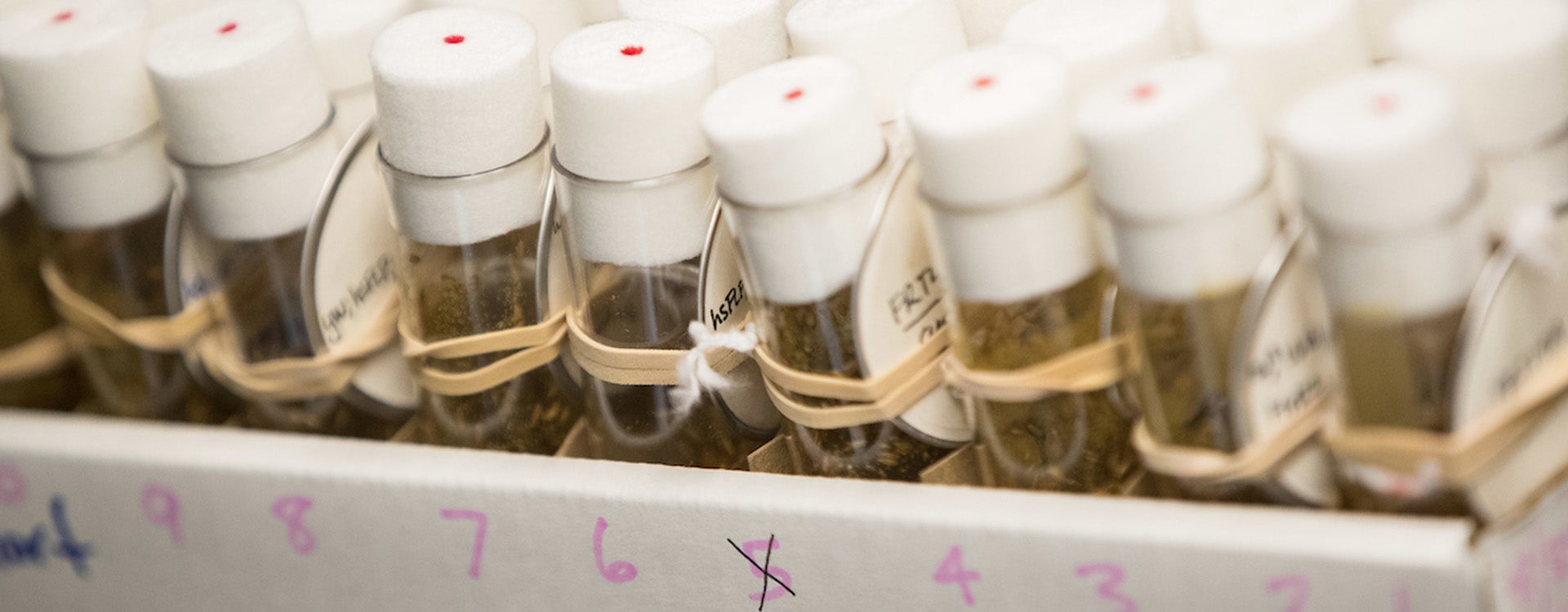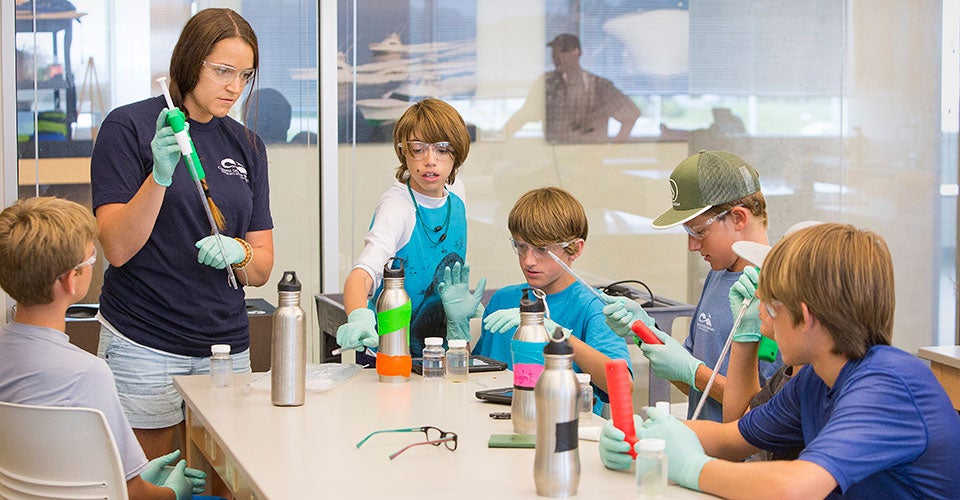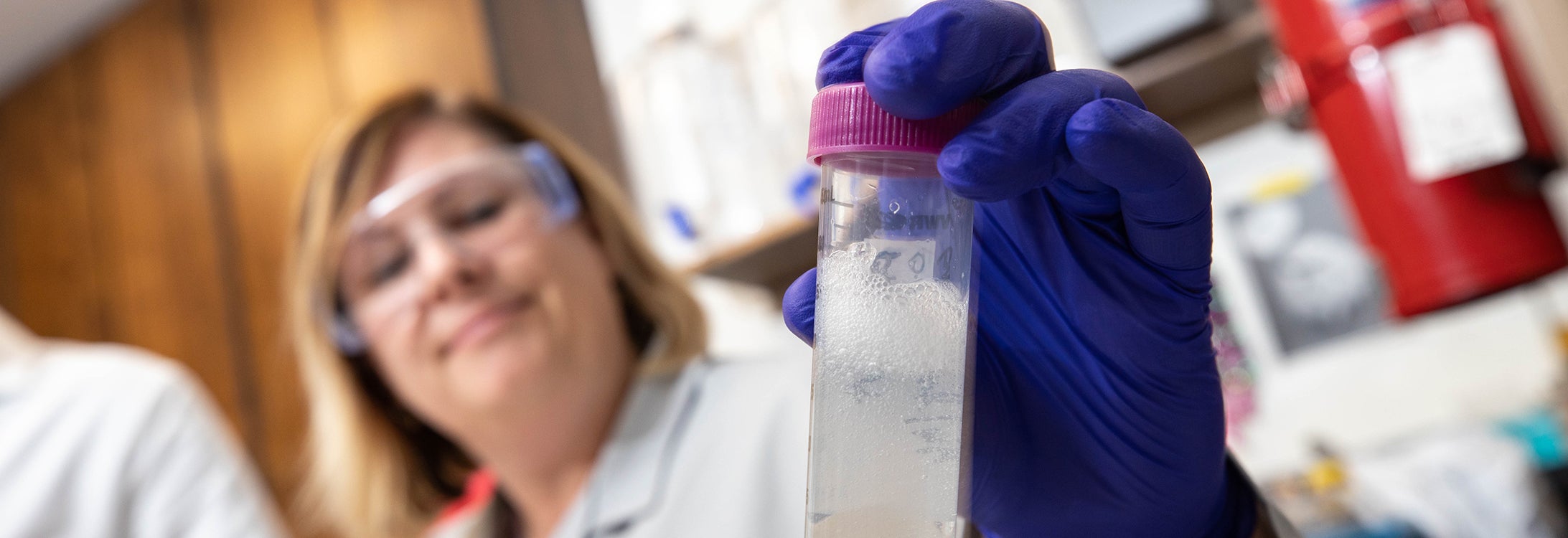RESILIENT RESEARCH
ECU faculty figuring out new ways to continue research during sheltering
Despite the challenges brought on by COVID-19, many East Carolina University researchers are finding ways to carry out their work, even if it means leaving their wet labs high and dry.
On March 23, the university transitioned from in-person instruction to alternative course delivery in efforts to stop the spread of COVID-19. Courses moved from the hallways of Bate and Howell to virtual classrooms on Zoom, Canvas and Blackboard.
However, Pirate researchers were left with the same question — what do I do with my lab?
For some, it meant halting years of work as labs were shuttered, unable to operate due to sheltering guidelines put in place by the state, UNC System and ECU.
For others, it meant finding unique ways to keep their projects operating, despite the lack of access to their field sites, test samples and students.
Looking for research assistance?
ECU’s Division of Research, Economic Development and Engagement has remained open as a resource for university researchers, even as its staff members work from their living rooms instead of a conference room.
The division is providing research program and lab guidance, research arrangement from federal research sponsors, and COVID-19 related funding opportunities to university researchers, as well as its traditional assistance with pre- and post-award monitoring.
“It’s important for science to continue so that we don’t lag too far behind,” DeWitt said. “Some of what (we) do has important implications for decision makers and impacted communities in our state. I don’t want to let those groups down.”
Support for small businesses is also available through the Small Business and Technology Development Center at ECU. The center will host a virtual town hall on April 8 for small business owners in eastern North Carolina.
Facing challenges
“My lab is basically shut down,” said Jamie DeWitt, an associate professor in the Brody School of Medicine’s Department of Pharmacology and Toxicology. “My technician, postdoc, temporary employee, master’s student, three undergraduate students and two high school students are working from home.”
DeWitt’s lab focuses on the toxicology of environmental contaminants, including per- and polyfluoroalkyl substances (PFAS). She added that her team could analyze and manage previously collected data, but that no new data could be generated without lab access.
“They are doing the best that they can,” she said. “We can continue in this fashion for a short period of time, but eventually we need to ask questions that can only be answered in the lab.”
Biology associate professor Elizabeth Ables is facing the same obstacles, with a wrinkle thrown in. Ables’ lab investigates molecular mechanisms that regulate stem cell self-renewal using fruit flies. Being responsible for live animal studies means that Ables must maintain their population and the specialized equipment used to keep her lab’s research running.
“I currently have a staff of three graduate students and eight undergraduates,” Ables said. “All of the undergraduates have moved back in with their families due to dorm closures and the restrictions in place, even in the student apartments in Greenville. This is really going to set my students back in terms of the data they could be collecting and the skills they should be acquiring in the lab. The students are all eager to get back.”
Both DeWitt and Ables are teaching courses this semester that were forced to move online, another challenge for Ables’ lab course.
“I was attempting to run the lab section as a course-based undergraduate research experience, which means students were supposed to collect live animal data,” Ables said. “As it happened, data collection was on the calendar for the week after spring break. I was forced to cancel that whole component of the course and brainstorm something entirely internet-based … it was a tough week.”
DeWitt said she’s been impressed by her team’s resilience.
“I think that we have to remember to be flexible, to communicate well and frequently, and to be organized,” she said. “I’m thankful that I have an amazing team in my lab that is dedicated to the lab and to one another. My people are pretty independent and I’m super proud of how everyone has just rolled with these changes with grace and respect.”

Along with managing students and data, some labs, like the one led by biology associate professor Elizabeth Ables, house live animal models. Labs must protect their animal species as part of the research lab guidance issued by the UNC System. (Photo by Cliff Hollis)
Community impact
Out at the Outer Banks Campus, ECU researchers were met with different hurdles to clear.
Reide Corbett, dean of ECU’s Integrated Coastal Programs and executive director of the Coastal Studies Institute, manages 21 researchers at the campus, many of whom work directly at field research sites.

Community programs hosted by ECU’s Outer Banks Campus are on hiatus until sheltering guidelines are lifted by the state. (ECU file photo)
“Our researchers are doing a great job of making the best out of a difficult situation,” Corbett said. “Like faculty across ECU and the UNC System, we are doing everything we can to postpone or pause all non-critical research. I know that people are working on papers, dealing with data analysis, and preparing for when we can return to the lab and field.”
The challenges facing researchers 115 miles away from Greenville are some of the same obstacles many eastern North Carolinians face when working remotely.
“I know of at least one person using their phone as a hot spot for internet service,” Corbett added.
The biggest impact along the coast may be felt by the communities the Outer Banks Campus serves. The campus hosts many events for K-12 students, teachers and adult learners, including camps and science lectures.
“The Coastal Studies Institute has an incredible community engagement team,” Corbett said. “We had many events on the calendar for March and April that have been canceled or postponed. Our community is so important to our mission.
“We will pick up where we left off as soon as the time allows. In the meantime, our engagement team is busy providing updates on continued research and education through social media. We want to give people something exciting, interesting and educational to read and provide an outlet during this stressful time.”
Finding a silver lining
Despite this new way of conducting research, all three faculty members have found positives about working from home.
“I get to walk my dog more often, sleep in a little bit later, and am spending more time with my husband — this may change as we slowly get on one another’s nerves,” DeWitt joked. “We’re also trying some new fitness routines that our gym is providing through Facebook. Last night we did a Body Combat class that I would probably have never attended in person due to being intimidated.”
Ables added that having the responsibility of trying to keep her lab operating has provided a nice distraction from the deluge of news.
“In the face of the pandemic, and particularly with the constant availability of news programs and social media, we can easily be drawn in to panic, worry and doubt,” she said. “If nothing else, trying to keep research running and classes moving has helped me personally to have something other than the pandemic on which to focus. It gives me purpose, and that helps keep my anxiety in check.”
Corbett believes that the ECU community has been a big help in dealing with the pandemic.
“ECU has done a great job providing information and has been a true leader across the east,” he said. “That’s true all across the university, in my opinion, from the chancellor down to my own staff. I am proud to be a Pirate given the incredible response to this unprecedented event.”
